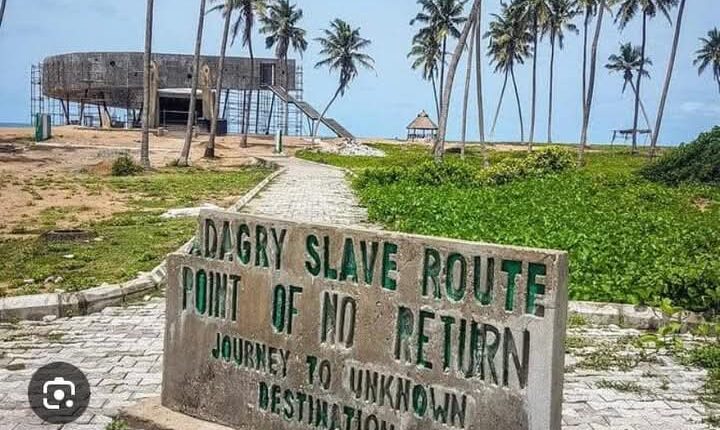The Lagos State Government proudly celebrates the historic recognition of Badagry’s Slave Route, including the renowned Point of No Return, as one of the 22 newly listed UNESCO World Heritage Sites.
This prestigious designation underscores Badagry’s pivotal role in global history and its enduring legacy as a key site in the transatlantic slave trade.
For centuries, Badagry served as a major hub for the slave trade. From the 8th to the 20th centuries, countless individuals were traded across land routes to North African territories and, from the 17th to 19th centuries, transported across the Atlantic to the Americas. The Point of No Return remains a stark and poignant symbol of this dark chapter in human history, representing the tragic journeys of those who were forcibly taken from their homeland.
The recognition by UNESCO is a testament to the historical and cultural significance of Badagry, shining a global spotlight on Lagos State as a centre for heritage preservation and cultural tourism. This milestone aligns seamlessly with the vision of Governor Babajide Sanwo-Olu to position Lagos as a leading tourism and cultural destination in Africa.
Speaking on this monumental achievement, the Honourable Commissioner for Tourism, Arts, and Culture, Mrs. Toke Benson-Awoyinka, noted that the recognition presents a unique opportunity for Lagos State to expand its tourism offerings while educating the world on the importance of acknowledging and learning from history.
“Badagry’s inclusion on the UNESCO list is not only a validation of its historical significance but also a call to preserve its legacy and use as a platform for healing, education, and cultural tourism. Lagos State remains committed to ensuring that this site is fully developed to provide visitors with an impactful and transformative experience,” the Commissioner stated.
She further emphasised that the Lagos State Government, through the Ministry of Tourism, Arts, and Culture, is collaborating with stakeholders to enhance infrastructure around the heritage site. This effort is geared toward ensuring that it remains a place of remembrance, reflection, and learning for generations to come.
This global recognition reaffirms Lagos State’s unwavering commitment to showcasing its rich history, promoting sustainable tourism, and preserving its cultural landmarks.




Comments are closed.